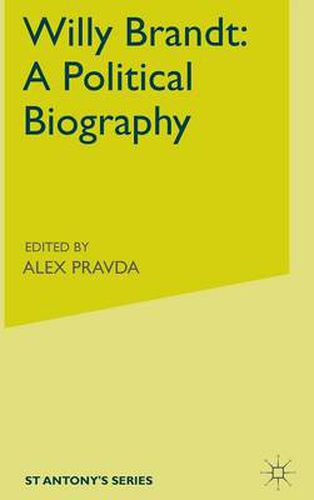Readings Newsletter
Become a Readings Member to make your shopping experience even easier.
Sign in or sign up for free!
You’re not far away from qualifying for FREE standard shipping within Australia
You’ve qualified for FREE standard shipping within Australia
The cart is loading…






This title is printed to order. This book may have been self-published. If so, we cannot guarantee the quality of the content. In the main most books will have gone through the editing process however some may not. We therefore suggest that you be aware of this before ordering this book. If in doubt check either the author or publisher’s details as we are unable to accept any returns unless they are faulty. Please contact us if you have any questions.
Willy Brandt, the first Social Democratic Chancellor of West Germany (1969-1974) was perhaps the most charismatic German leader since Hitler. His life reflects German 20th-century history from the Weimar Republic to the new Germany as a result of unification with the GDR. He was mayor of Berlin when the Wall was built (1961) and as Chancellor he initiated Ostpolitik which indirectly contributed to the fall of the Iron Curtain. As Chairman of the North-South Commission he drew the world’s attention to the plight of the Third World. He won the Nobel Peace Prize in 1991.
$9.00 standard shipping within Australia
FREE standard shipping within Australia for orders over $100.00
Express & International shipping calculated at checkout
This title is printed to order. This book may have been self-published. If so, we cannot guarantee the quality of the content. In the main most books will have gone through the editing process however some may not. We therefore suggest that you be aware of this before ordering this book. If in doubt check either the author or publisher’s details as we are unable to accept any returns unless they are faulty. Please contact us if you have any questions.
Willy Brandt, the first Social Democratic Chancellor of West Germany (1969-1974) was perhaps the most charismatic German leader since Hitler. His life reflects German 20th-century history from the Weimar Republic to the new Germany as a result of unification with the GDR. He was mayor of Berlin when the Wall was built (1961) and as Chancellor he initiated Ostpolitik which indirectly contributed to the fall of the Iron Curtain. As Chairman of the North-South Commission he drew the world’s attention to the plight of the Third World. He won the Nobel Peace Prize in 1991.